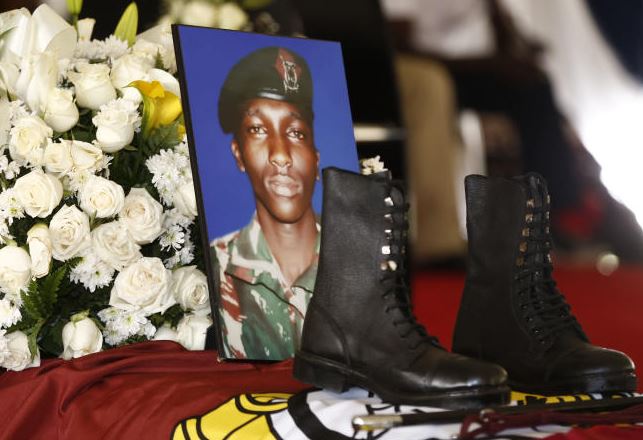×
The Standard e-Paper
Stay Informed, Even Offline

Sergeant Kipyegon Kenei portrait during the burial ceremony at Chamasisi Village in Rongai, Nakuru. [Kipsang Joseph, Standard]
It had been slightly under three hours since Sergeant Kipyegon Kenei left his Imara Daima house after a long day at work. It was a Saturday and he’d been away for almost two weeks from his fiancée in Nakuru.